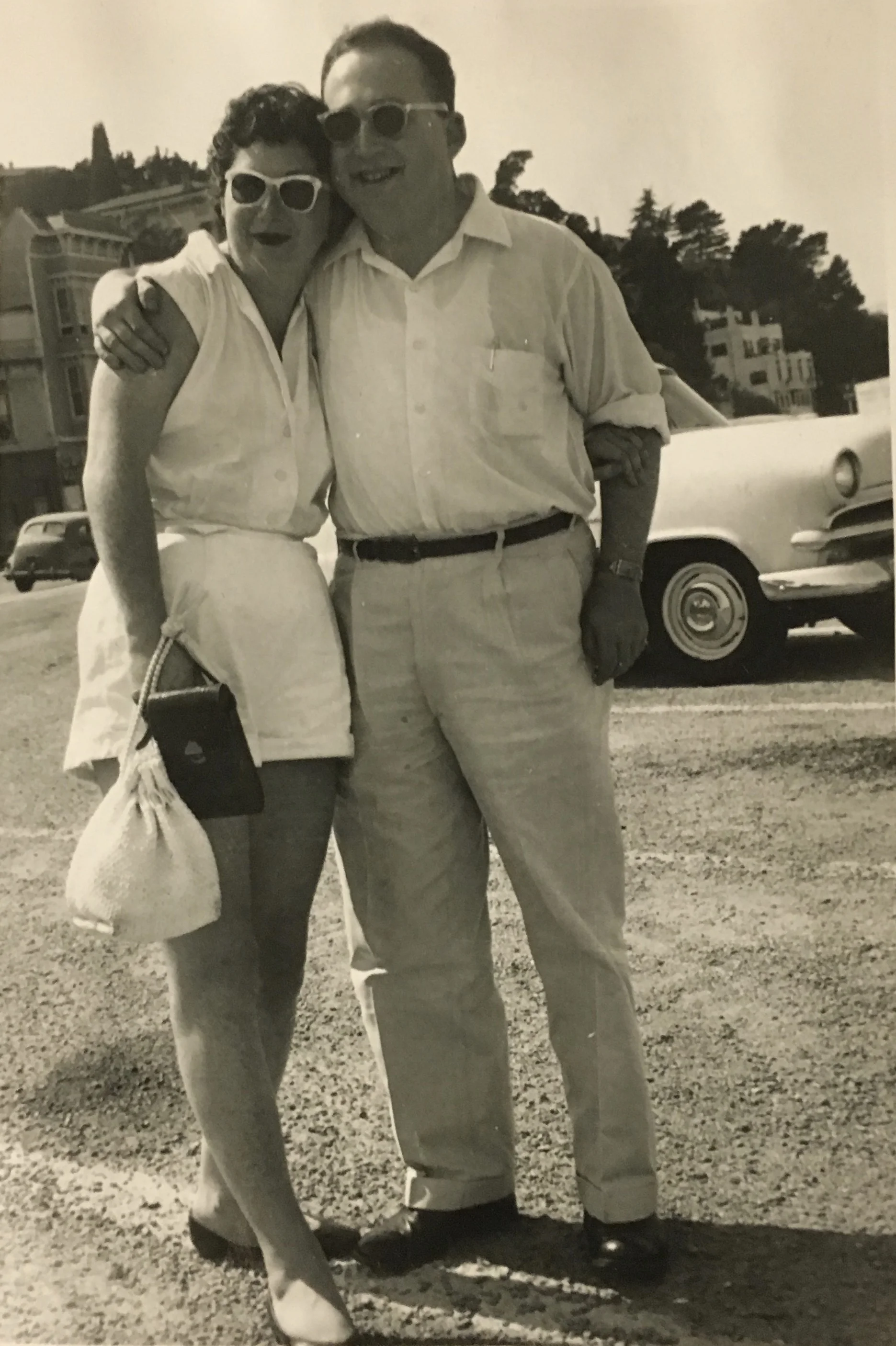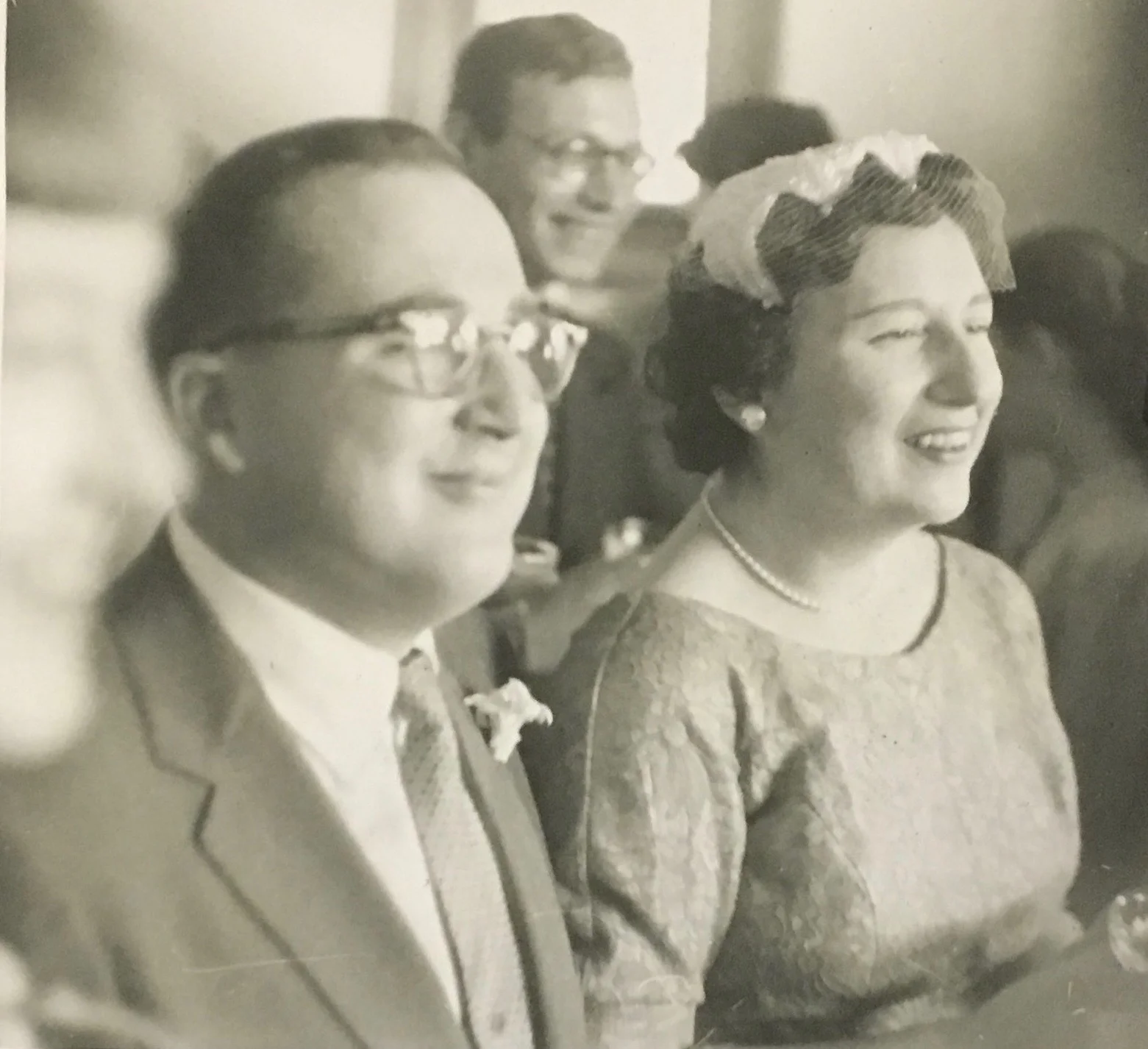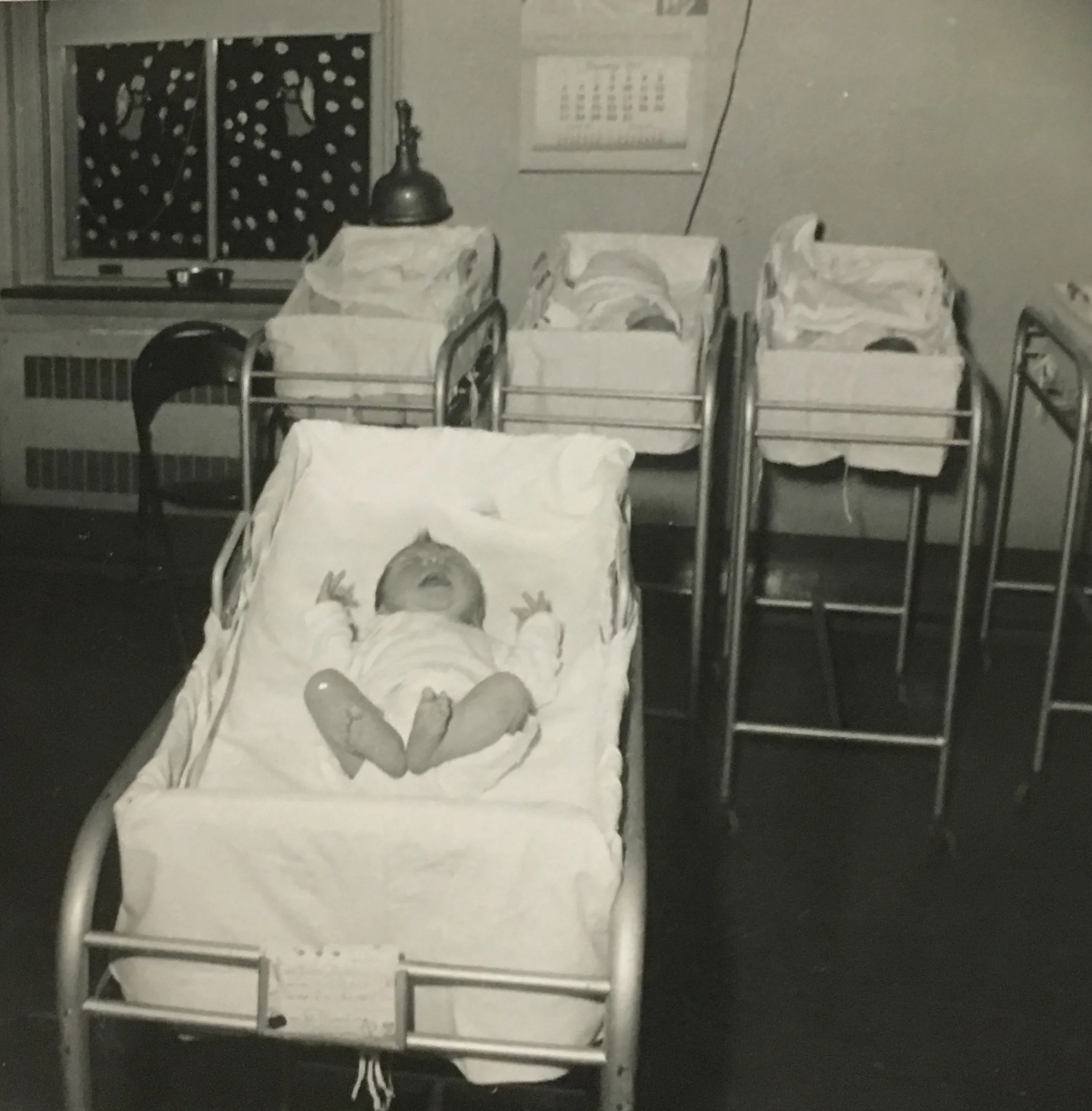My parents, Gordon S. and Dorothy Beryl Lovelace Kino, are both Londoners (though my father was born in Australia). But they met and married in the San Francisco Bay Area, a new and magical world. They had both lived through the war as children, and as young adults, the future in England looked bleak. My father arrived in the early 1950s to get his Ph.D. in electrical engineering at Stanford. My mother, who'd left school at 15 after having been evacuated and changing schools a lot, saved up and came to visit her wealthy relatives in Washington state for a year. On the way home she visited San Francisco, found it enchanting, got a job and stayed. At the end of the second year, she met my father at an engagement party--everyone wanted to hear them talk in English accents to each other--and a month after the wedding they were engaged. ("Can you believe it, I'm marrying an egghead!" she wrote her best friend--now my godmother--back at home.) Soon they were married and on their way to New Jersey, where he'd been offered a glittering new research job at Bell Labs.
That's when their new life in the new world almost fell apart. They honeymooned in Canada so my father could renew his visa but suddenly the U.S. wouldn't let them back in--despite the Ph.D. and the great job at Bell. The honeymoon stretched from two weeks to six. They ran out of money. My father started looking for work in Canada. And my mother finally had to call her wealthy relatives and ask for a loan. The relatives, suspicious about this weird intellectual my mother had hitched herself to so quickly, gave them a tiny handout. But they also hired a lawyer, who got the visa fixed the next day.
A year or so later, Stanford finally offered my father a tenure-track position and they returned to California, where he eventually became a full professor, then head of his lab, then associate dean of engineering, then held an endowed chair till he died last year. He authored hundreds of papers, produced about 110 patents and mentored about 80 Ph.D.'s, who've mentored scores more in their turn. He also pioneered many different areas of research and inventions, from the confocal scanning microscope, which became indispensable in the semiconductor industry, to the dual-axis confocal microscope, which makes it possible to biopsy tissue in vivo--during the procedure rather than in the lab. And my mother contributed to his success, because in that era you couldn't have a glowing career without a devoted faculty wife by your side.
So when people whinge on about illegal immigrants and how their families came in legally, I must admit that mind did, too. But if my mother hadn't had wealthy relatives, and if those relatives hadn't known the right Canadian lawyer, and hadn't had the resources to pay him, we wouldn't have that conversation because I'd be English or first-generation Canadian.
Also, neither of my parents would be allowed into America under today's proposed immigration rules, for the simple reason that they just weren't rich. They came from a bleak, war-ravaged country. And while they weren't refugees, they grew up poor and arrived here broke. Every one of my father's fellow Ph.D. students and early associates--aka the people who built the early Silicon Valley--was the same. Many had passed through the Bronx High School of Science, CCNY and CUNY. More than a few were European Jews who'd escaped as children or students and didn't talk about that part of their lives.
A country that looks to the future, filled with people who are willing to devote hard work and ingenuity to building it, however they can: I grew up as a first-generation American believing that was what was great about the new land my parents had chosen. I hope it will become that again.
My parents when they were engaged.
My parents at their wedding.
Me, Carol, the Anchor Baby.


